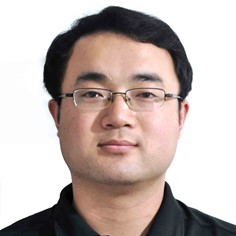Electrocatalytic Wastewater Treatment: Resource Utilization and New Technology
A special issue of Catalysts (ISSN 2073-4344). This special issue belongs to the section "Electrocatalysis".
Deadline for manuscript submissions: 15 September 2024 | Viewed by 81
Special Issue Editors
Interests: electrocatalytic oxidation; electrochemical scale removal; electrochemical sterilization; metal oxide electrode
Special Issues, Collections and Topics in MDPI journals
Interests: electrochemical nitrate reduction; electrochemical hydrogen evolution; advanced oxidation process; adsorption
Special Issues, Collections and Topics in MDPI journals
Interests: electrochemical oxidation; electrode material; wastewater treatment; emerging contaminant; microplastics
Special Issue Information
Dear Colleagues,
Electrocatalytic wastewater treatment uses electrons as green reagents or initiators of various reactive species to destroy pollutants in water, and is thus regarded as an alternative to traditional wastewater treatment technologies or a supporting method. In addition, hydrogen, ammonia and other value-added chemicals may be generated during the electrocatalytic wastewater treatment process, which increases the economic value of the process. In recent years, with the development of science and technology, various new electrocatalytic wastewater treatment technologies have emerged, and related fields have become the focus of scientific research. To this end, we are organizing a Special Issue focused on the development of new electrocatalytic wastewater treatment technology and resource utilization. Areas of interest include:
- New catalysts
- New reactors
- New processes
- New products
If you would like to submit papers to this Special Issue or have any questions, please contact the in-house editor, Mr. Ives Liu ([email protected]).
Prof. Dr. Hao Xu
Prof. Dr. Jiangtao Feng
Dr. Dan Shao
Guest Editors
Manuscript Submission Information
Manuscripts should be submitted online at www.mdpi.com by registering and logging in to this website. Once you are registered, click here to go to the submission form. Manuscripts can be submitted until the deadline. All submissions that pass pre-check are peer-reviewed. Accepted papers will be published continuously in the journal (as soon as accepted) and will be listed together on the special issue website. Research articles, review articles as well as short communications are invited. For planned papers, a title and short abstract (about 100 words) can be sent to the Editorial Office for announcement on this website.
Submitted manuscripts should not have been published previously, nor be under consideration for publication elsewhere (except conference proceedings papers). All manuscripts are thoroughly refereed through a single-blind peer-review process. A guide for authors and other relevant information for submission of manuscripts is available on the Instructions for Authors page. Catalysts is an international peer-reviewed open access monthly journal published by MDPI.
Please visit the Instructions for Authors page before submitting a manuscript. The Article Processing Charge (APC) for publication in this open access journal is 2700 CHF (Swiss Francs). Submitted papers should be well formatted and use good English. Authors may use MDPI's English editing service prior to publication or during author revisions.
Keywords
- electrochemical oxidation
- electrochemical reduction
- electrocatalyst
- electrochemical reactor
- wastewater treatment







